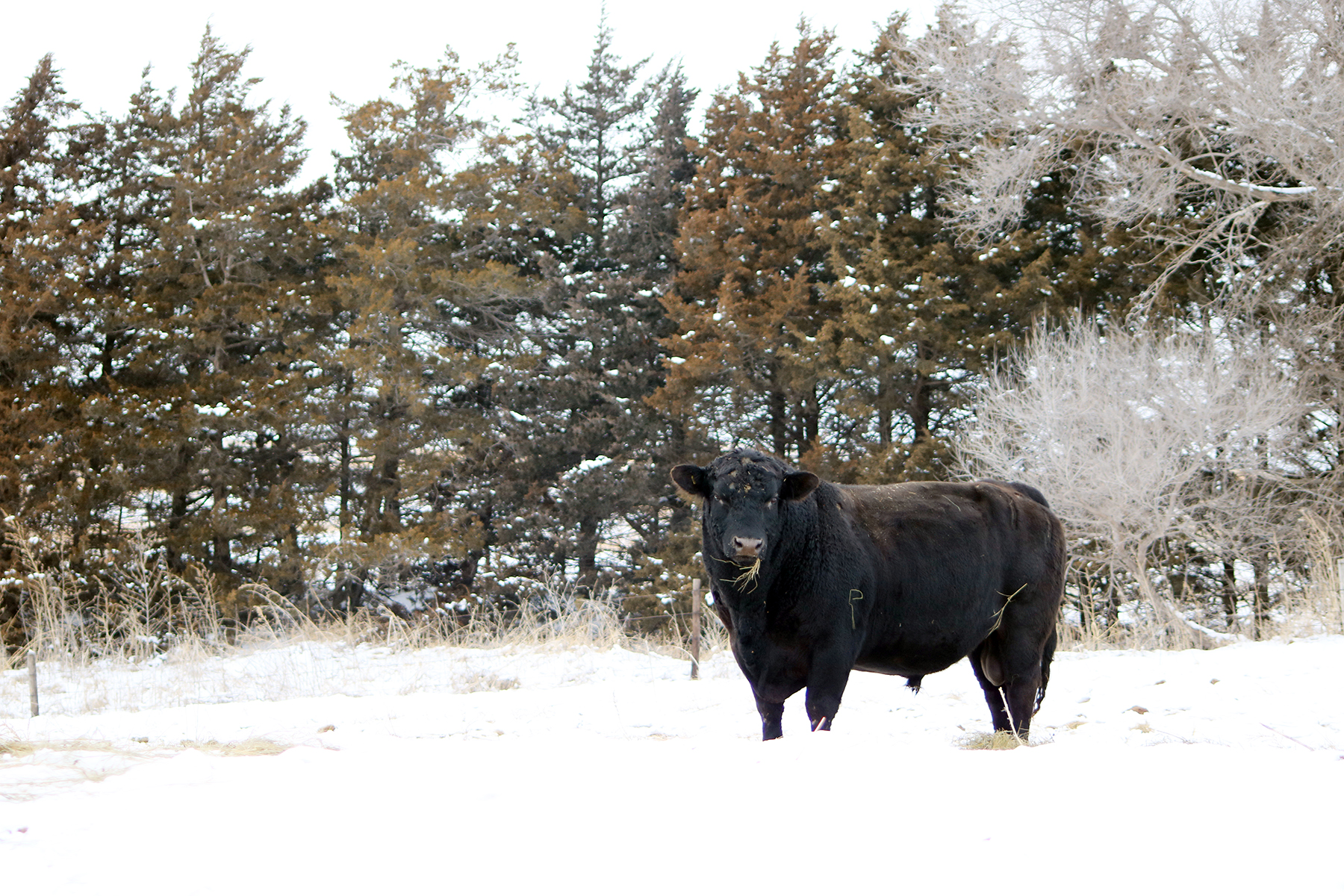Winter weather challenges for bulls can affect breeding season

Livestock producers know winter can be a challenge for their cowherds, and Karla Wilke, Nebraska Extension cow-calf and stocker specialist, reminds them not to forget about their bulls in their winter management plans.
“Bulls are one of our bigger investments in the cow herd, and 90% of the cows are still impregnated through natural service with a bull rather than artificial insemination,” Wilke said. “So, they also require year-round maintenance.”
While most cows are in larger groups, bulls tend to be in small groups, resulting in more exposure to the elements. Keeping them protected from the elements is crucial. A bull’s testicles can get frostbite, which could decrease semen production and quality, making it hard to pass their breeding soundness exams. Wilke suggests windbreaks and some bedding of poorer quality feed bales or corn stalk residue bales to protect and maintain the bull. Winter weather can also create scenarios where bulls can be injured, such as on ice. If it doesn’t recover by the breeding season, it can create a loss, having to be sold or culled in the spring.
Winter is not the only season a bull can be at risk. Especially for young bulls, where they can lose weight with low-quality forages in drought. A young bull can lose one to two points on a body condition score of one to nine during the breeding season. Maintaining a body condition score of five to six in winter will result in higher quality semen than when bulls have a body condition score of four.
A livestock producer will also need more bulls for the breeding season if all their bulls are young. “A young bull, who is typically 12 to 16 months old, can breed 10 to 15 cows. A mature bull of 30 months or more can breed 25 to 30,” Wilke said. When mixing young and older bulls, keep an eye on the older bull. Older, larger bulls can injure younger bulls when fighting for dominance.
“It’s really important to have yearly breeding soundness exams done on all bulls,” she said. When a bull breeder sells a new yearling, that bull will have had to pass to go through sale. Producers will want to make sure older bulls continue to get soundness exams. A dominant bull who cannot pass a breeding soundness exam and prevents younger bulls from having access to the cows can result in cows that do not get bred or get bred late in the breeding season. It takes a bull two months to produce semen. Again younger bulls are still growing and will sometimes fall apart in the winter if their nutritional needs are not met.
To learn more about breeding bull management, visit https://extensionpublications.unl.edu/assets/pdf/g2332.pdf or contact Karla Wilke at [email protected].



